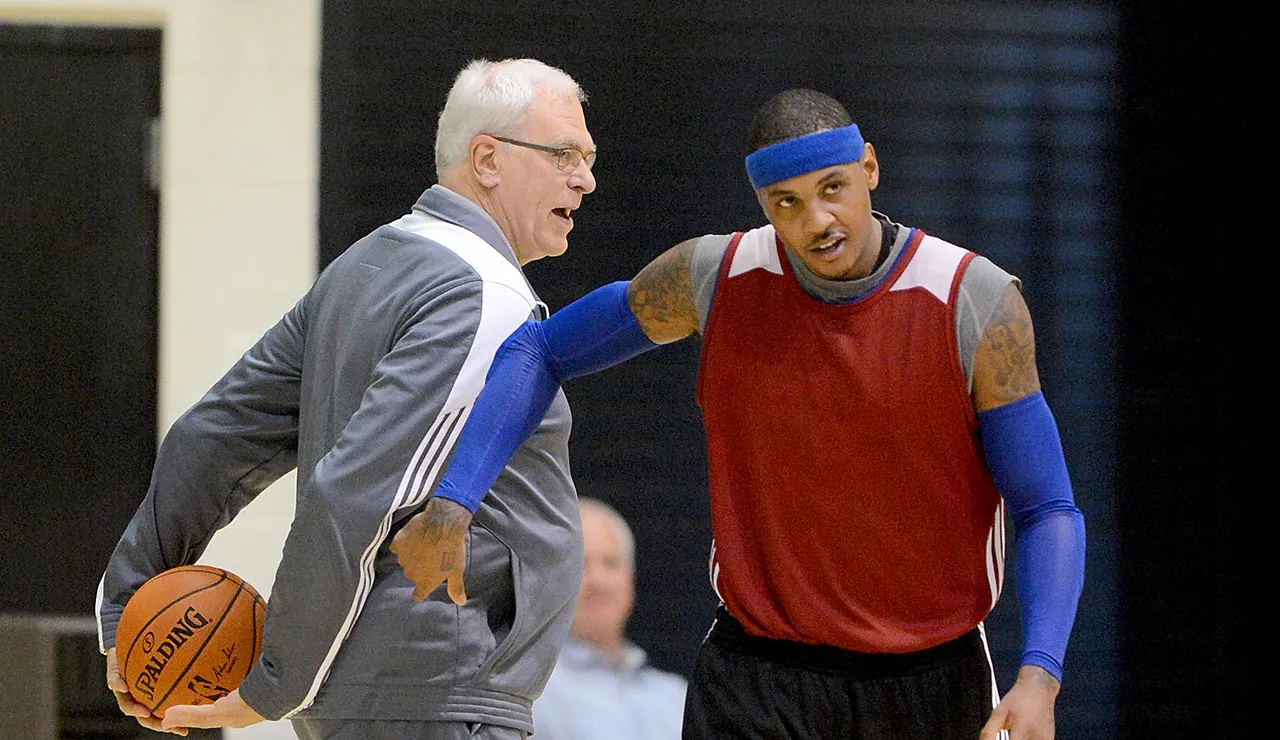Phil Jackson’s tenure as an executive with the New York Knicks is widely regarded as a challenging and ultimately unsuccessful period in the franchise’s history. Despite his legendary status in the NBA as a player and coach, Jackson’s time as the Knicks’ team president from 2014 to 2017 was marked by struggles both on and off the court. His tenure saw the Knicks compiling a disappointing 80-166 record, a far cry from the winning culture Jackson had been associated with during his coaching days.
Jackson’s legacy in New York is complicated. As a player, he was part of the Knicks’ only championship team in 1973, but as an executive, his leadership failed to bring the same level of success. His time with the Knicks was marred by internal conflicts, most notably with star forward Carmelo Anthony. Jackson’s new book, "Masters of the Game," set to be released soon, sheds light on the tensions that defined this period, providing insight into the fractured relationship between the two basketball icons.
One of the key reasons for Jackson’s departure from the Knicks was a “busted” relationship with Carmelo Anthony, which he openly discusses in his book. The friction between them was so significant that it eventually led to Jackson’s exit. Jackson recounts a conversation with Knicks owner James Dolan, in which Dolan expressed concern about media backlash and the potential fallout from the ongoing discord. Jackson, however, remained unfazed by media scrutiny, stating, "I know who the media is; that doesn’t affect me." Despite this, Dolan felt the situation had become untenable, telling Jackson, “I don’t want you to go through it. I know what it’s like to deal with these people.”
Jackson made it clear that his deteriorating relationship with Anthony was a major factor in his decision to leave. He suggested that if Anthony was going to remain with the Knicks, it might be best for him to step away. Jackson also revealed that he had proposed trading Anthony, acknowledging that the team was not in a position to contend for a championship with Anthony on the roster. He said, “We’re not going to win a championship. Carmelo wants a championship; he wants to be on a team that has a chance, and he should be; he’s a Hall of Famer.”
At the heart of the discord was a clash of basketball philosophies. Jackson, famed for his implementation of the triangle offense—a strategy that led to multiple championships with the Chicago Bulls and Los Angeles Lakers—was insistent on running the system in New York. However, Carmelo Anthony was resistant to this style of play. According to former Knicks head coach Jeff Hornacek, Anthony’s primary desire was to have the ball in his hands, a style that conflicted with the team-oriented triangle offense Jackson championed. This fundamental disagreement created a rift that proved difficult to bridge.
Ultimately, Carmelo Anthony waived his no-trade clause and was traded to the Oklahoma City Thunder approximately three months after Jackson’s departure from the Knicks. This move marked the end of Anthony’s tenure with the Knicks and, so far, his last stint in the NBA. Jackson had hoped to buy out Anthony’s contract to facilitate a smoother transition, but the Knicks’ ownership declined that option, leading to more tension within the organization.
Jackson’s challenges in New York extended beyond his relationship with Carmelo Anthony. His tenure was also marked by a publicized conflict with Kristaps Porziņģis, the Latvian forward whom Jackson had selected with the first pick during his time as Knicks president. The details of that drama are less clear, but it added to the overall narrative of a tumultuous period under Jackson’s leadership.
Phil Jackson’s legacy as a Knicks executive is a stark contrast to his storied coaching career, where he won 11 NBA championships as head coach of the Bulls and Lakers. His time in New York underscores the complexities of managing a modern NBA franchise, especially one with high expectations and a passionate fan base. The relationship strains with key players and the inability to translate his coaching success into executive effectiveness serve as reminders that success on the court doesn't always translate to success in the front office.
As Jackson’s new book is about to be published, fans and analysts alike will gain a deeper understanding of the internal workings of the Knicks during one of their most challenging eras. His candid reflections on his battles with Carmelo Anthony and other incidents provide a rare glimpse into the pressures and politics of

